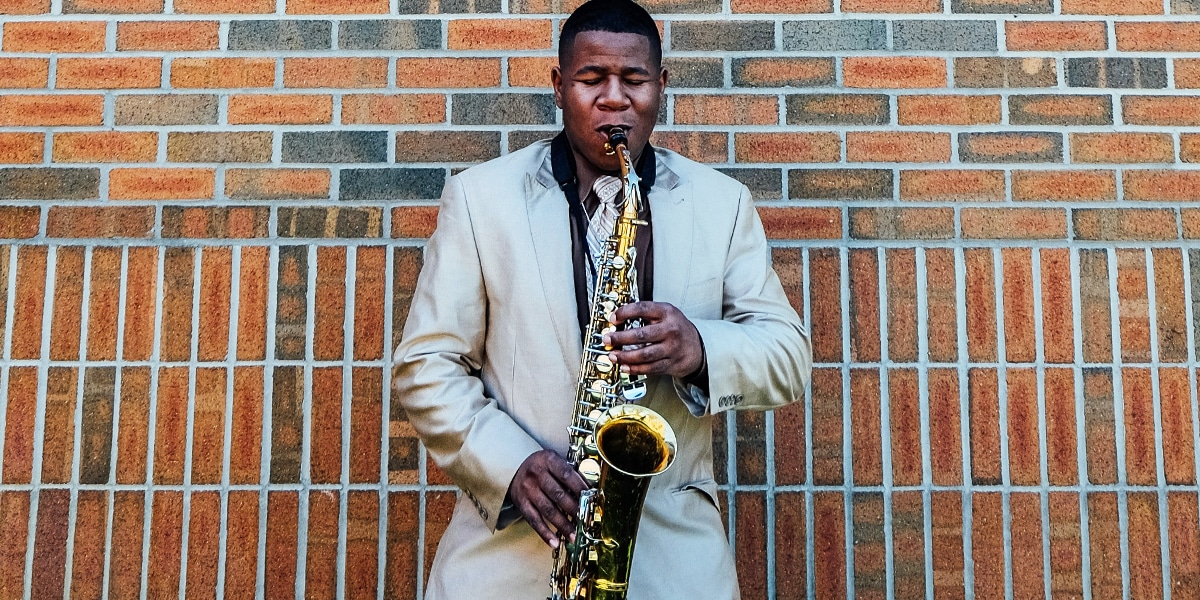Despite its wide-ranging presence in the Bible, we Christians have by and large lost touch with this dimension of prayer. It is something we need to recover.
At a certain time, a country was under attack by an assortment of Middle Eastern peoples. The crisis was acute and its leader called all the people to prayer.
This general description sounds painfully similar to the 9/11 terrorist attacks, but, in fact, the time in question was about 850 B.C. The country was the biblical kingdom of Judah. The enemies were from Ammon, Moab and Edom (today all part of Jordan). The leader was the Davidic king, Jehoshaphat, and the prayer he called the people to—”We are powerless before this vast multitude that comes against us. We are at a loss what to do, hence our eyes are turned toward you” (2 Chronicles 20:12)—was lamentation.
Lamentation, a prayer for help coming out of pain, is very common in the Bible. Over one-third (50 or so) of the psalms are laments. Lament frequently occurs in the Book of Job: “Why did I not perish at birth, come forth from the womb and expire?” (Job 3:11). The prophets likewise cry out to God, such as Jeremiah does: “Why is my pain continuous, my wound incurable…?” (15:18) and Habakkuk: “…my legs tremble beneath me. I await the day of distress that will come upon the people who attack us” (3:16).
One whole book, Lamentations, expresses the confusion and suffering felt after the destruction of Jerusalem by the Babylonians.
We find something similar in the New Testament as well. People who are afflicted cry out to Jesus for help. Bartimaeus, the blind beggar, shouts out, “Jesus, Son of David, have pity on me!” (Mark 10:47).
Jesus himself laments to the Father in the Garden of Gethsemane, “Abba, Father, all things are possible to you. Take this cup away from me…” (Mark 14:36). In his agony on the cross, Jesus makes his own the words of Psalm 22, “My God, my God, why have you forsaken me…?”
Despite its wide-ranging presence in the Bible, we Christians have by and large lost touch with this dimension of prayer. It is something we need to recover.
What Is Lamentation?
When we feel blessed in life, when we experience goodness and wholeness, we turn to God in praise and thanksgiving. But what happens when we experience just the opposite? What happens when we are overcome by the presence of chaos, brokenness, suffering and death, or by a sudden sense of our human vulnerability, as in the terrorist attacks in New York, Washington, D.C., and Pennsylvania?
When we hurt physically, we cry out in pain; when we hurt religiously, we cry out in lament. Lamentation can be described as a loud, religious “Ouch!”
To begin with, the laments we find in Scripture are addressed directly to God: “Out of the depths I cry to you, O Lord; Lord, hear my voice!” (Psalm 130:1) and “My soul, too, is utterly terrified; but you, O Lord, how long…?” (Psalm 6:4).
In more modern terms we might say, “I call to you, O Lord, and all I get is your answering machine!” We take our cries directly to the top. God, however, seems very far away, “O my God, I cry out by day, and you answer not; by night, and there is no relief for me” (Psalm 22:3).
We ask heartfelt questions: “How long, O Lord? Will you utterly forget me?” (Psalm 13:2), which implies: I am at the end of my rope, and I cannot hold on much longer; and, “Why, O Lord, do you stand aloof? Why hide in times of distress?” (Psalm 10:1), which implies: “I do not understand what is going on; this makes no sense. How long? Why?” These are not requests for information, but cries of pain.
The afflictions of the speaker(s) are described in broad, stereotyped ways with which all sufferers can identify: sickness—”…heal me, O Lord, for my body is in terror” (Psalm 6:3); loneliness and alienation—”My friends and my companions stand back because of my affliction…” (Psalm 38:12); danger and mistreatment by others—”O Lord,… save me from all my pursuers” (Psalm 7:2) and even aging—”Cast me not off in my old age…” (Psalm 71:9).
Finally, the ultimate affliction is physical death—”For my soul is surfeited with troubles and my life draws near to the nether world” (Psalm 88:4). All of these are manifestations of the realm of chaos and of brokenness invading and pulling our lives apart.
The Role of Enemies
Lamentations often speak of enemies. At times these are enemies from outside the community, also known as “foreigners” or “the nations”: “O God, the nations have come into your inheritance; they have defiled your holy temple” (Psalm 79:1).
At other times, it is an enemy from within who schemes and plots against the psalmist: “I hear the whispers of the crowd…as they consult together against me” (Psalm 31:14).
On more than one occasion, the psalmist suggests to God things to do to these enemies, which are known as the so-called “cursing psalms”: “So now, deliver their children to famine, do away with them by the sword….May cries be heard from their homes” (Jeremiah 18:21-22); “All my enemies shall be put to shame in utter terror” (Psalm 6:11); “Happy the man who shall repay you the evil you have done us! Happy the man who shall seize and smash your little ones against the rock!” (Psalm 137:8-9).
It is fairly obvious that as Christians we are not all that comfortable in speaking our pains, our doubts and our anger before God. Lament leaves us more than a little uneasy.
Unlike the Jewish community (think of Tevye in Fiddler on the Roof, speaking his pain and confusion to God), we have lost a certain sense of lamentation, and this has been, in the words of one scholar, “a costly loss.” What might we gain from a recovery of lamentation?
Accepting Lament as an Act of Faith
First, we feel, “My God, my God, why have you forsaken me?” and we might think, “I should not feel this way! I am losing my faith!” Lament corrects a false, naïve and overly rationalistic view of faith.
In the Scriptures, faith is not simply an intellectual assent to some statement about God. It is the trusting of our entire selves to God. At times, we do experience God’s absence; we do feel alone and confused, and we doubt.
Doubt is not opposed to faith; despair is. We see this in the case of the father who brought his son to Jesus for healing. When Jesus encouraged the father to have faith, he replied, “I do believe, help my unbelief!” (Mark 9:24).
Even St. Paul tells us he was “perplexed, but not driven to despair” (2 Corinthians 4:8). In despair we give up on our relationship with God. Doubt, on the other hand, is a sign that our faith is alive and kicking; it is part of the rhythm of faith itself. Lament is not a failure of faith, but an act of faith. We cry out directly to God because deep down we know that our relationship with God counts; it counts to us and it counts to God.
Even if we do not experience the closeness, we believe that God does care. Even if God seems not to hear, we believe that God is always within shouting distance. In the Scriptures, God does not say, “Do not fear, I will take away all the pain and struggle.” Rather, we hear, “You have no need to fear, since I am with you” (e.g., to Isaac, frightened of the Philistine king—Genesis 26:24; to the anxious Moses being sent to confront Pharaoh—Exodus 3:11-12; to the disciples when they see Jesus walking on the sea—Matthew 14:27) and together we will make it.
We will survive, yes, even death itself. In the aftermath of the terrorist attacks, our security can be shaken, and our faith as well. Perhaps it is not lamenting, but the failure to lament that expresses a lack of faith.
Secondly, in lamenting we cry to God, “Why, O Lord?” Our suffering is so big; it does not make any sense; it lacks meaning. The desire to find meaning is a strong one. After the attacks on the World Trade Center, a photo made the rounds on the Internet showing what seemed to be a face (or a skull) visible in the smoke pouring out of the towers. Could this be a sign that this was the work of the devil? Others appealed to the predictions of Nostradamus and some of the superficial religious explanations of prominent media preachers to make sense of what had happened.
In our search for meaning, we can be tempted to look for cheap and easy answers. Lament teaches us that there are indeed things we do not understand; in fact, we cannot understand. God does not say, “Do not fear; you will understand everything and have all the answers.” Our human mind can take us only so far. At times we can do no more than speak our confusion to God, and lament tells us that we should do no less.
Thirdly, we feel against people who hurt us, personally or as a nation, “Happy the man who shall seize and smash your little ones against the rock” (Psalm 137:9), and we think, “I should not feel this way; it is against charity.”
Lament counters a false, naïve and overly romantic view of charity. Charity does not mean that everything is lovely, that we never get upset, that we sit around holding hands and saying how wonderful everything is. This is unreal. Negativity, injustice, hatred, brokenness are part of our lives and part of our world. In the face of this, we can have an instinctive feeling for retaliation in kind, for returning hatred with hatred. I do feel pain, hurt and anger, but these are not a good basis on which to act. The fact that I feel a certain way does not give me permission to go out and dump my negativity wherever and on whomever I want. Lament suggests that it is all right to express our uncensored feelings before God.
Acknowledging Our Pain
In this light, the “cursing psalms” make sense. They have often been a particular stumbling block. We need to recognize, first, that they are clearly spoken out of great pain and distress. The feelings are really in the psalms, and at times they are really in us.
But, second, the psalmist does not say, “I am going to go out and smash his little ones against the rock!” We do not, as it were, take things into our own hands. We say rather, “God, this is the way I feel; I leave it to you.” And God has never been known to rush out and do everything we ask when we are angry. We let God deal with it, and in the process, we get the feelings out of us; we can begin to respond more reflectively, more constructively.
It is true that Jesus’ example teaches us to pray, “Father, forgive them, they know not what they do” (Luke 23:34)—an attitude found also in some parts of the Old Testament, such as Exodus 23:4-5 and Job 31:29-30. This is indeed the direction in which we hope to move, the direction we want our actions to reflect. But our feelings may not always be there—at least at first.
Again, the feelings are real and will not go away, and if we do not recognize them and deal with them constructively, they will go underground and pop up later in destructive ways. Lament is a constructive way to deal with them.
It is often noted that almost all of the lament psalms (Psalm 88 is an exception) end on a sudden turn to praise (e.g., 6:9-11; 22:23-32). Scholars have offered various explanations for this, but from the viewpoint of prayer, the meaning seems clear. It is only after we lament, after we face and express the pain and negativity and get it all out, that healing can begin. In more theological terms, we can say that it is only by facing and going through the death that we can come to new life, to resurrection.
The structure of lament tells us that it is possible to praise too soon. The psalmist takes the time to let all the pain and anger out before the praise can set in. Perhaps it is not lamenting, but the failure to lament that expresses a lack of charity.
Recovering the Power of Lamentations
It is true that we have lost a healthy sense of lament in our personal prayer life. We have lost it as well in our communal, liturgical life. Almost the only remaining context in which lament is formally acknowledged is the funeral liturgy, but here too it is possible to give lament short shrift.
Some years back, after the changes in the rite of funerals, a family I knew lost a child in a boating accident. A lot of pressure was brought to bear to “celebrate the Mass of the Resurrection, to rejoice in his birth to new life.”
About a year later, their suppressed grief almost tore the family apart. Again, we must not deny honest pain, nor jump too quickly from loss to acceptance and skip over the lamenting process. Christian faith does proclaim a message of hope, but death and grief are still real.
Perhaps other situations exist in which some form of communal liturgical or paraliturgical lament would be appropriate: after a painful experience of divorce; in a religious community after dear members choose to leave; when missionaries depart for home after years of service in a foreign country; for victims of clergy abuse on the path of healing; in a neighborhood taken over by drug dealers; in a community hard hit by HIV and AIDS; in a community devastated by natural disaster (fire, flood, earthquake, tornado, hurricane); for people after the experience of rape. Or when terrorists attack a country and many lives are lost.
Perhaps we are discovering that, as a nation, we have been more traumatized than we initially thought; there may still be lamentation work to do.
How helpful it would be if we had some structures and models to allow us to express and acknowledge our grief, our pain, our confusion and our anger; to offer each other strength and support in difficult times; to help us, individually and communally, move forward with the task and challenge of life and to help us discern what is a good and proper response to any situation.
We have such structures and models available to us in the prayer of our Scriptures. The loss of lament has been costly; we have much to gain by recovering it.









2 thoughts on “Biblical Laments: Prayer Out of Pain”
Pingback: Guest Post: Lamenting Before God | The Domain for Truth
Pingback: Lamenting Before God – A Repost – Devotional Treasure